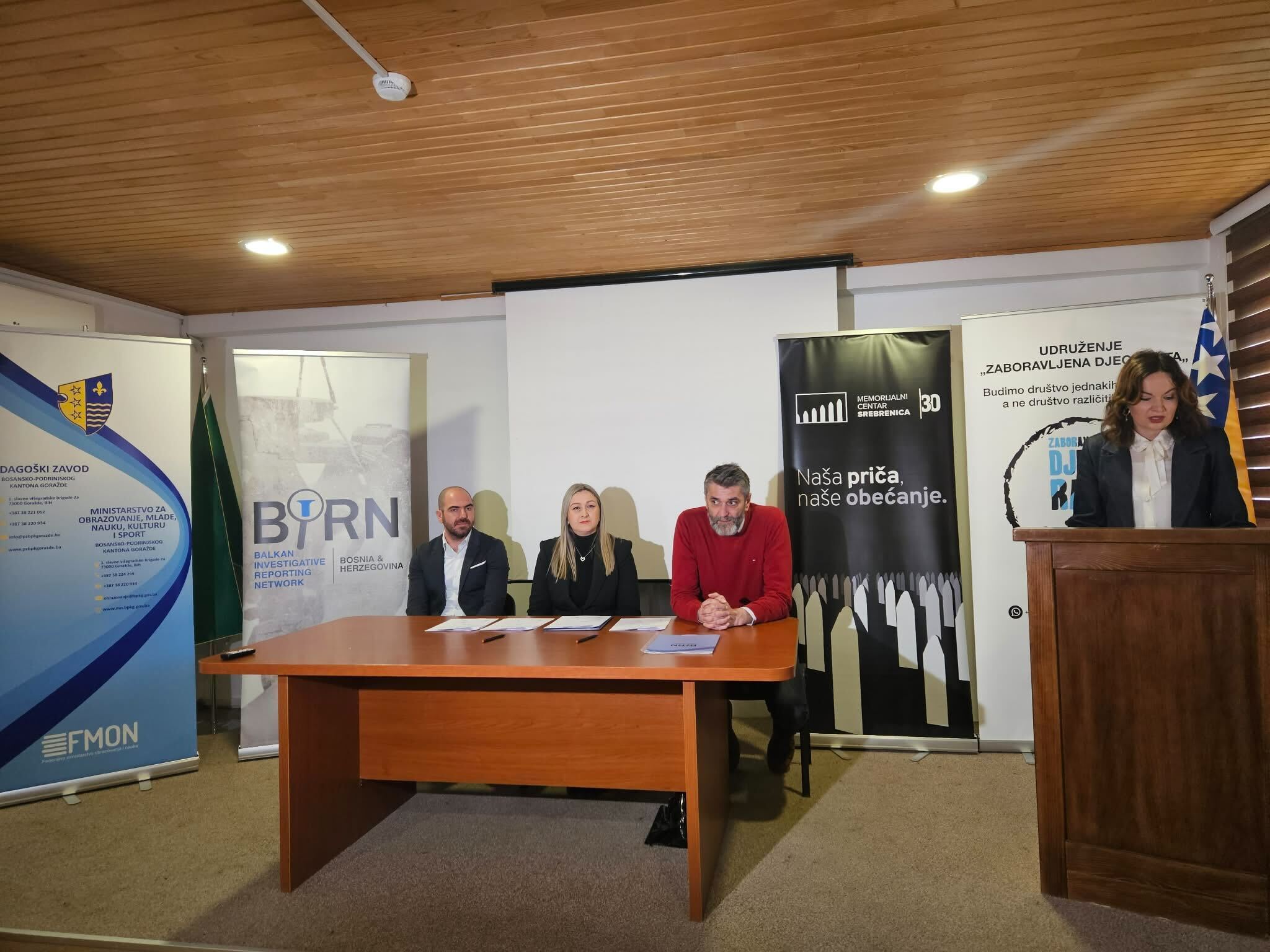This post is also available in: Bosnian
In the continuation of trial of four indictees for crimes committed in Prijedor detention camps, one Prosecution witness has claimed that he survived camp Omarska thanks to Momcilo “Ckalja” Gruban.
The Prosecution considers that Zeljko Mejakic, Gruban, Dusan Fustar and Dusko Knezevic took part, from April to August 1992, in the beating, torture, killing and raping of civilians in detention camps Omarska, Keraterm and Trnopolje near Prijedor.
Enes Kapetanovic, a former Omarska detainee, claims that he and other residents of Donja Puharska settlement in Prijedor were arrested on 31 May 1992, taken to Omarska and then transferred to Keraterm.
“In this period they only placed captured Croats and Muslims in the detention camps. We were first taken to Omarska, but due to lack of space they transferred us to Keraterm. I stayed there for four days and I was then released,” said witness Kapetanovic.
Only a few days later, on 12 July 1992, Kapetanovic was arrested again and this time he was detained in Omarska. He alleges to have seen Gruban and Mejakic there.
“During our stay in Omarska, we could hardly wait for Gruban’s shift as it would make us feel the safest. We were allowed to drink water and we were not beaten, and Ckalja, I think, was their boss,” the witness pointed out.
The indictment alleges that Gruban, called Ckalja, was a commander of guards in Omarska from 24 May to 30 August 1992, while Mejakic was the commander of the camp in the same period.
The indictment further alleges that Fustar was one of the three commanders of guards in camp Keraterm, where, as indicated by witnesses, Knezevic used to come occasionally and took part in maltreatment of detainees.
Witness Kapetanovic spoke about one more event during the direct examination. Gruban was involved in that event and, as Kapetanovic says, the indictee saved his life on that occasion.
“One night, I cannot remember exactly when, I was called out together with three more detainees. On my way out I saw Gruban who hugged me in a friendly manner and took me to the restaurant to give me some food.
As there was no bread in the restaurant, he escorted me back to the room and he said it would be a pity for such a guy to leave. I believe I would not be here now if he was not in the camp at that moment,”
said the witness.
During cross-examination, Mejakic’s attorney Jovan Simic asked the witness if there was some hierarchy in the camp, and if there were any Serbs among the detainees.
“We thought that the interrogators were superior to everybody, the next in line were Miroslav Kvocka, Mejakic and Drago Prcac, and then Gruban, Milojica Kos and Mladjo Radic, and the last in line were the guards,” he added.
“I know that some Serbs were detained in the camp, and some would only came to do some work as locksmiths and electricians,” explained Kapetanovic, who left Omarska on 5 August 1992 and was taken to Manjaca where he stayed until the end of December 1992. He was then taken to camp Batkovici near Bijeljina.
The International Criminal Tribunal for the former Yugoslavia (ICTY) has already sentenced Miroslav Kvocka, Drago Prcac, Milojica Kos and Mladjo Radic to long prison sentences for crimes committed in detention camps Omarska and Keraterm during 1992.
The trial continues on 3 May.

